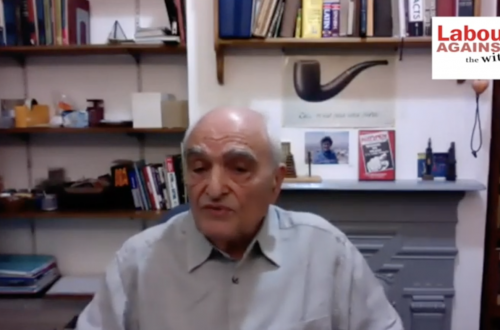This is a cross post by Carmel Gould at Just Journalism.
Scathing critiques of Israeli policy are the bread and butter of Guardian writer, Rachel Shabi. However, in her latest contribution, ‘Israel turns upon its own,’ published in print and online, she goes much further than the facts will carry her.
Depicting an alleged descent by Israel into ‘long-incubated racism, both institutional and incidental – a casual, acceptable prejudice’ she blames not Judaism but ‘the Eurocentric cornerstones of the country: the belief, expressed by Israel’s founding fathers and still current, that the nation should be a bastion of the “enlightened” west in the heart of the supposedly savage Middle East.’
However, her attempt to illustrate Israelis’ apparent rejection of all things Arab – and presumably Muslim – only serves to highlight the gap between anti-Israel fantasy and a slightly more mundane reality.
Shabi claims that Israel is ‘the sniffy neighbour of the Middle East,’ explaining why ‘The ban on travel to most Arab countries is of no consequence to the majority of Israelis, who could not be less interested in the region.’ True, Israelis are banned by Israel from travelling to countries such as Lebanon and Syria, but Shabi omits to mention that they are also banned by the countries themselves. Even if a non-Israeli has so much as an Israeli stamp on their passport, they will be denied entry to Lebanon.
But what about Arab countries from which Israelis are not banned? Every year, tens of thousands of Israelis travel for tourism purposes to Egypt and Jordan – both countries with peace treaties with Israel – indicating that where they are welcome in the Arab world, Israelis will travel.
In 2004, the year of bomb attacks targeting Israeli tourists in Sinai, the visitor numbers to the Egyptian resort region reached a massive 400,000. This goes some way to rebut the claim that Israelis ‘could not be less interested in the region.’ It also raises the question of how many Egyptians have opted to visit Israel since the 1979 peace treaty? Would the inevitably paltry figure be paraded by Shabi as reflecting deep-seated Arab racism?
The Guardian writer goes on to assert that Israelis suffer from a ‘vacuum-sealed lack of curiosity’ which acts as ‘the perfect breeding ground for prejudice, because a minimal interest in variety is the precursor of tolerance and because cultures grow myopic without exposure to outside influence.’ If this was true of the Israeli outlook, why was Muslim Turkey – until the recent deterioration in bilateral Israel-Turkish relations – the single most popular tourist destination for Israelis? In 2008, 558,000 of them managed to overcome their disinterest in variety by visiting Turkey, with numbers at 311,000 in 2009. Again, how many curious Turks have visited Israel in the same time period?
Rachel Shabi closes her article by lamenting Israel’s ‘disdainful refusal to be part of the region’ and describing the country as ‘an increasingly insulting irritation to the region it has so arrogantly snubbed.’ Given what we know, perhaps it is the prejudices of ‘the region’ which need examining.


